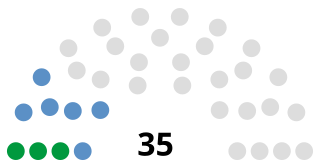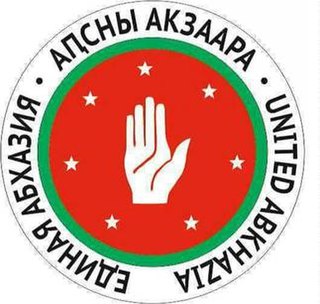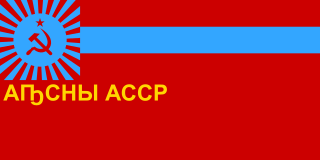
Raul Jumkovich Khajimba is the current President of Abkhazia, having been elected in 2014 after the May Revolution. He was also Chairman of the Forum for the National Unity of Abkhazia from 2010–2015. Khajimba previously held the offices of Vice President (2005–2009), Prime Minister (2003–2004) and Defence Minister (2002–2003). He unsuccessfully ran for President in 2004, 2009 and 2011.

The Prime Minister of Abkhazia is the head of government of the Republic of Abkhazia.
The office of Minister for Foreign Affairs of the Republic of Abkhazia was created on 17 May 1993, during the 1992-1993 war with Georgia. Due to the diplomatic isolation of Abkhazia, which remains widely unrecognised, the role of the foreign minister has been restricted mostly to negotiations over resolving the Georgian-Abkhazian conflict.
Sergei Shamba is a senior politician from Abkhazia. He is currently a member of the People's Assembly of Abkhazia and Chairman of United Abkhazia. He was Prime Minister of Abkhazia under President Sergei Bagapsh from 13 February 2010 until 27 September 2011. Between 1997 and 2010 he had been Minister for Foreign Affairs under both Bagapsh and his predecessor Vladislav Ardzinba, with only a half-year interruption in 2004. Shamba has twice unsuccessfully participated in Presidential elections, in 2004 and 2011. He has been a staunch proponent for dialogue between Abkhazia and Georgia.
On 3 October 2004 Abkhazia held its second Presidential elections since the post of President of the Republic of Abkhazia was created in 1994, and the first that were competitive. Election law prohibited incumbent President Vladislav Ardzinba from running for a third term and he instead backed Prime Minister Raul Khadjimba, who also enjoyed support by Russian authorities. Khadjimba's main opponent was Sergei Bagapsh, the candidate supported by the two major opposition parties United Abkhazia and Amtsakhara, and later also by Aitaira when their candidate Alexander Ankvab was barred from running in a controversial decision by the Central Election Commission.
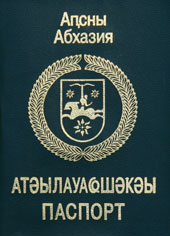
The Abkhazian passport is issued to citizens of the Republic of Abkhazia for the purpose of international travel and for the purpose of legal identification within Abkhazia. As Abkhazia is only recognised by Russia, Venezuela, Nicaragua and Nauru, for all other destinations Abkhazian citizens must use another passport for international travel.

Daur Tarba is the current Minister for Agriculture of Abkhazia. In the past, he has also been Chairman of United Abkhazia at a time when it was the ruling party, Vice Premier and head of the Ochamchira district.

On 12 December 2009, Abkhazia held its fourth Presidential election since the post of President of the Autonomous Republic of Abkhazia was created in 1994. The election was won by incumbent president Sergei Bagapsh in the first round with 61% of the votes, thus gaining a second term in office. He was inaugurated on 12 February 2010. Bagapsh competed against four opposition candidates: former Vice President and Prime Minister Raul Khajimba, who came second behind Bagapsh in the 2004 Presidential election, and newcomers Beslan Butba, Zaur Ardzinba and Vitali Bganba. Khajimba had stated that he, Ardzinba and Butba would support each other should one of them reach the second round of the election.
Stanislav Lakoba is an academic and politician from Abkhazia. Lakoba was Sergei Bagapsh's Vice-Presidential candidate in the 2004 Presidential election and from 2005 to 2009 and again from 2011 to 2013 he served as Secretary of the Security Council. He is Professor in Archeology, Ethnology and History at the Abkhazian State University.
Sergei Matosyan is an Armenian-Abkhazian colonel and opposition politician. He is the current Deputy Speaker of the People's Assembly of Abkhazia and a former Minister.
The Government of President Sergei Bagapsh was the Government of the Republic of Abkhazia from 2005 until 2011.
The Government of President Alexander Ankvab was the Government of the Republic of Abkhazia from 2011 until 2014.
Leonid Dzapshba is a two-time Minister for Internal Affairs of Abkhazia, a former Presidential candidate and the former head of the Football Federation of Abkhazia.
The Abkhazian Revolution took place in 2014, when President Aleksandr Ankvab resigned after hundreds of demonstrators stormed his office. After mass protests in the capital Sukhumi and the occupation of his office on 27 May, Ankvab fled to his hometown of Gudauta and ultimately resigned on 1 June, after previously denouncing the demonstration as an attempted coup d'état.

Presidential elections were held in the Republic of Abkhazia on 24 August 2014. The sixth such elections since the post of President of Abkhazia was created in 1994, they were held early due to the resignation of President Alexander Ankvab on 1 June 2014 following the 2014 Abkhazian political crisis. Four candidates contested the elections, which were won by Raul Khadjimba, who received just over 50% of the vote.
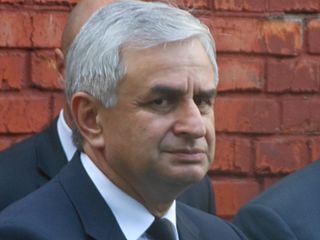
The Government of President Raul Khajimba is the current Government of the Republic of Abkhazia.
Shamil Adzynba is the current First Vice Premier of Abkhazia in the Government of President Khajimba, and a two-time acting Prime Minister.
Dmitri Shamba is the Plenipotentiary Representative of the President of Abkhazia to the People's Assembly of Abkhazia and the First Deputy Head of the Presidential Administration.
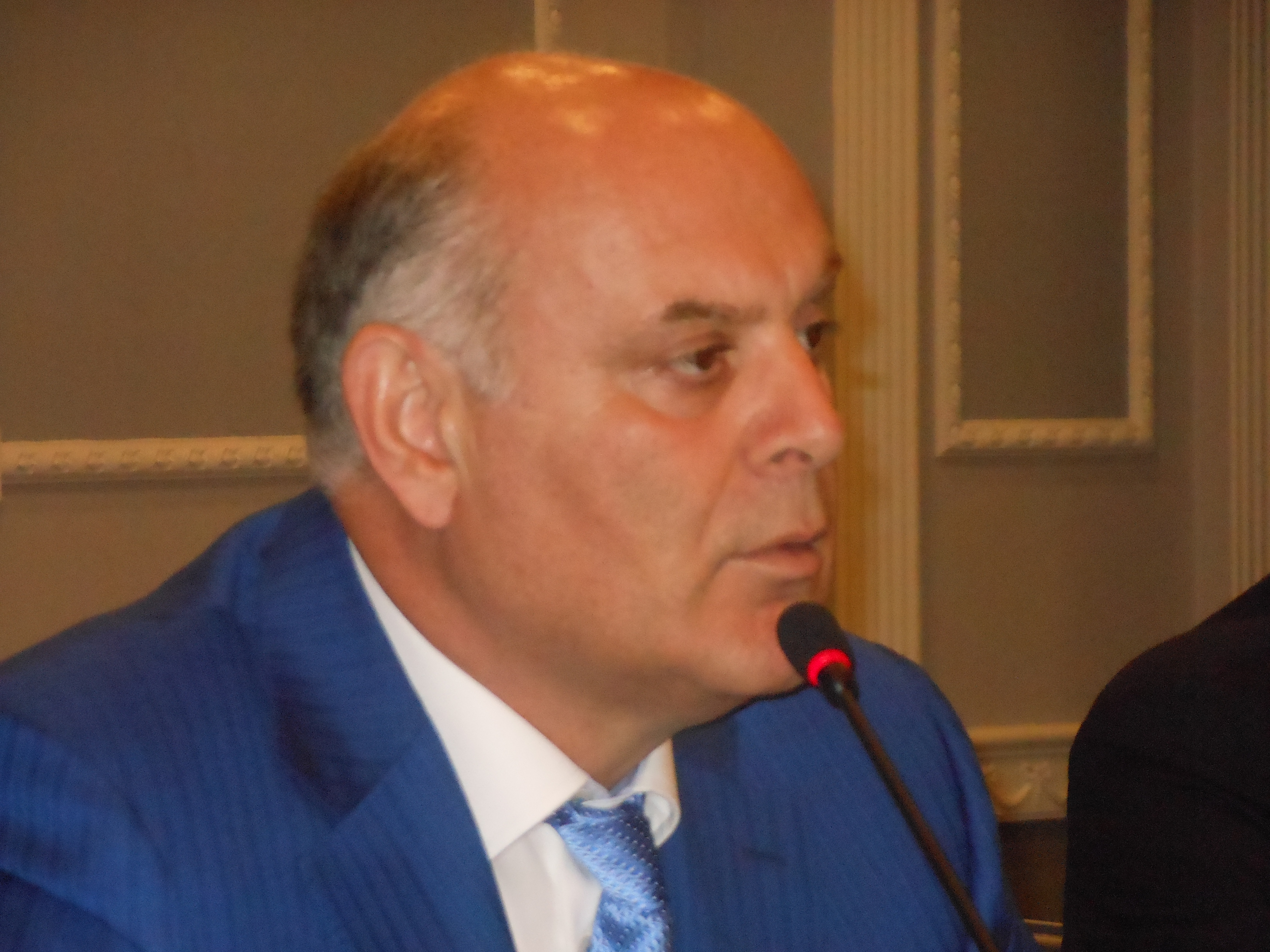
Aslan Bzhania is a former Head of the State Security Service, a former Presidential candidate and one of the current leaders of the opposition in Abkhazia.







